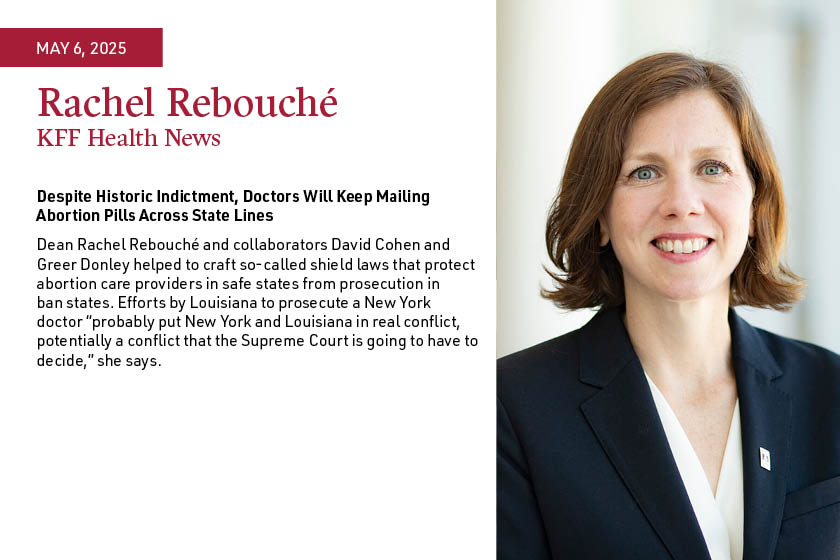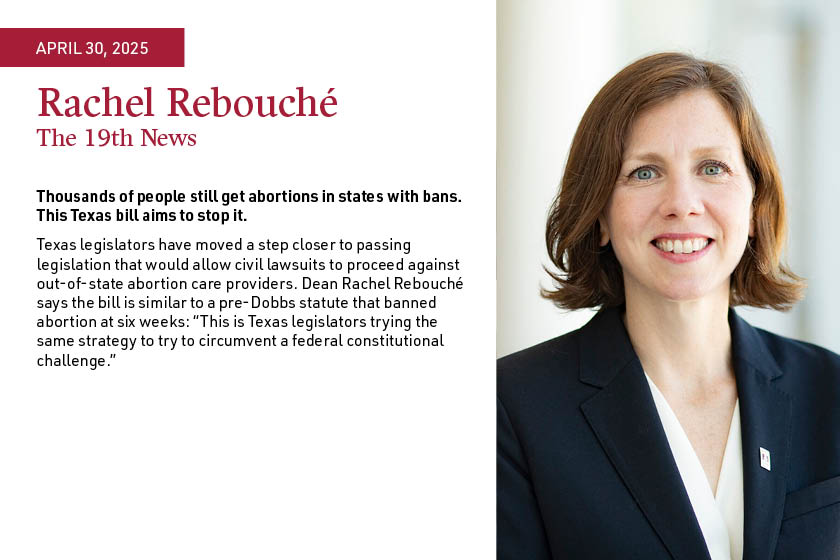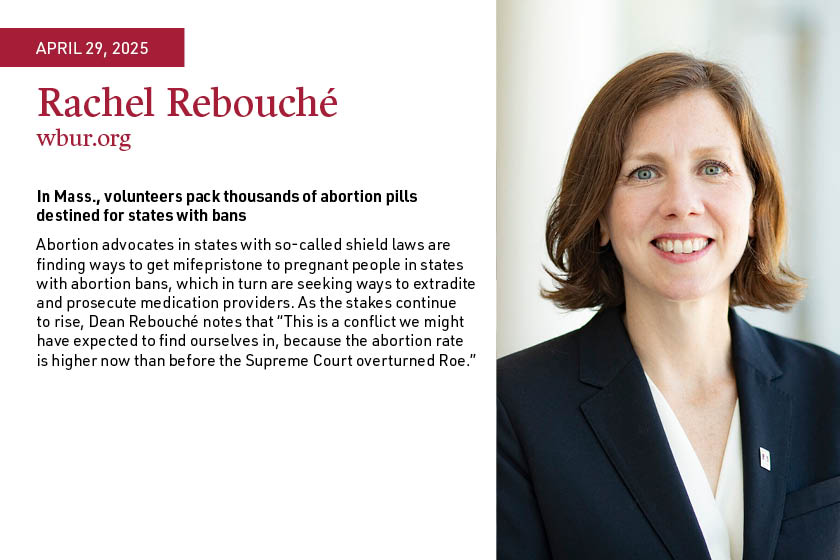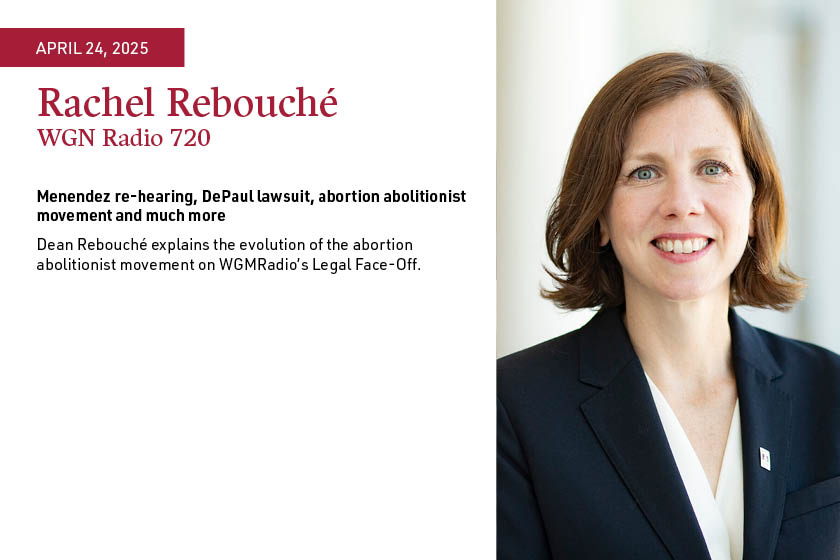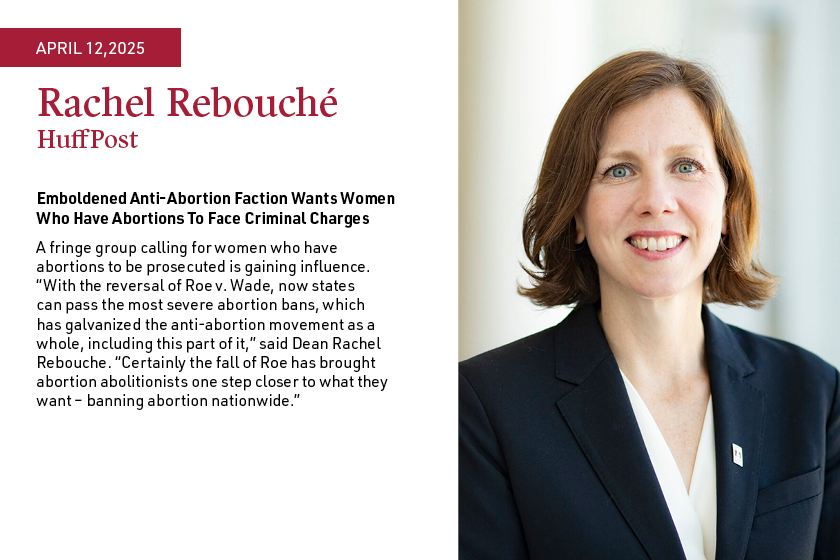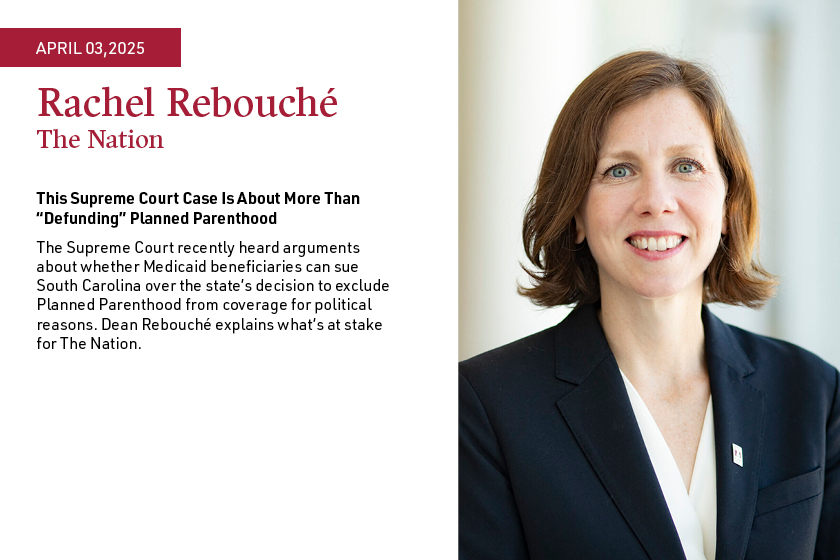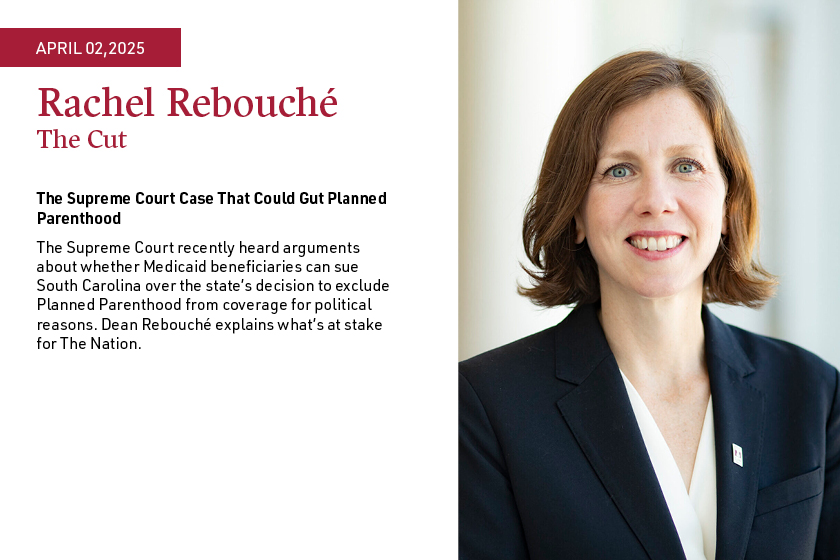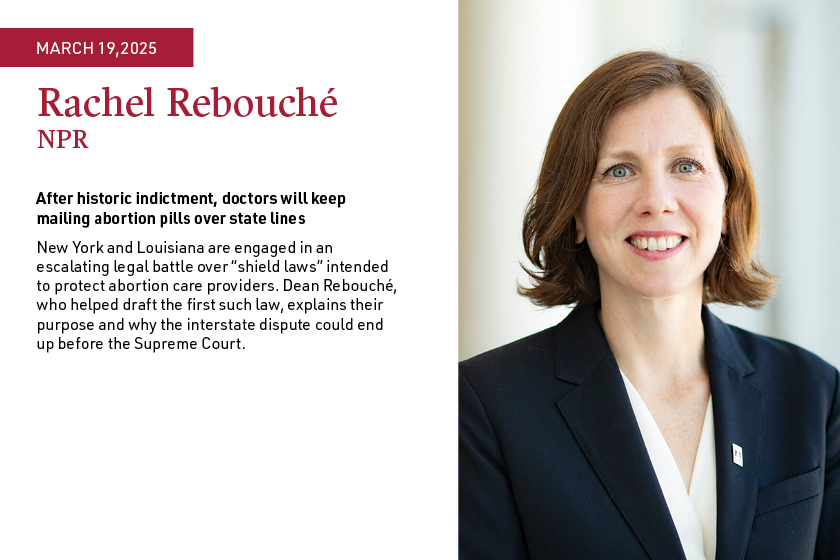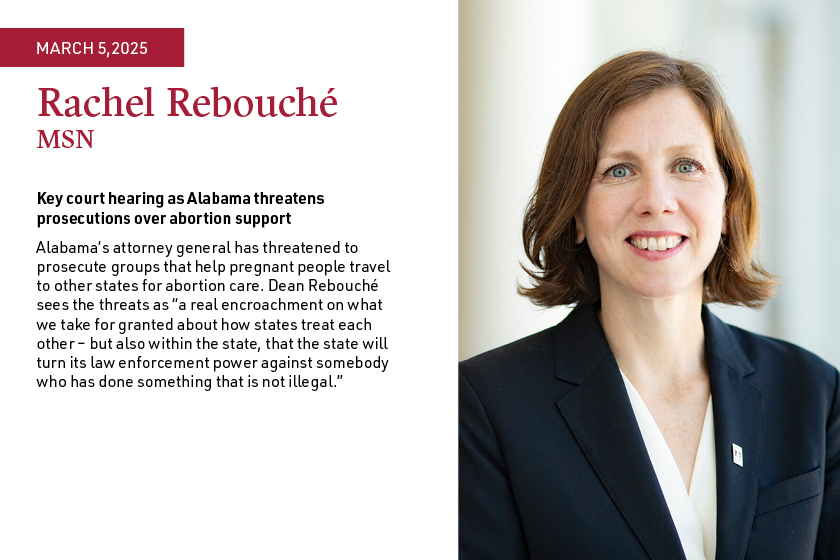A Message from Outgoing Dean Rachel Rebouchè
Content: Editor’s note: The following message was shared by outgoing dean Rachel Rebouchè with alumni and friends of Temple Law School as she steps down from the deanship to join the faculty at University of Texas – Austin School of Law. Dear Alumni and Friends, As many of you may know, I will step down as Dean of Temple University Beasley School of Law at the end of the summer and join the faculty at the University of Texas at Austin this fall. Although this was a challenging decision to make, I am excited and confident about the future because Temple Law is thriving. Our faculty, administration and staff have reached many milestones over the past several years. The law school celebrated an over 90% bar passage rate for first-time test takers, the highest in more than a decade, and the highest employment rates for new graduates two years in a row; we hired 16 new faculty members; and our development efforts have secured an endowed deanship and multiple new scholarships enabling Temple Law …


